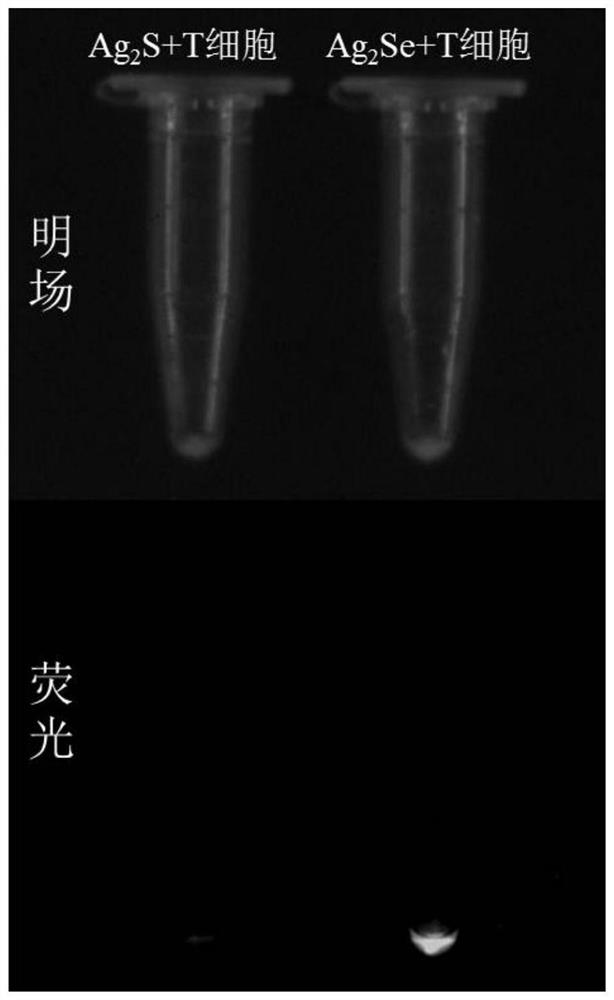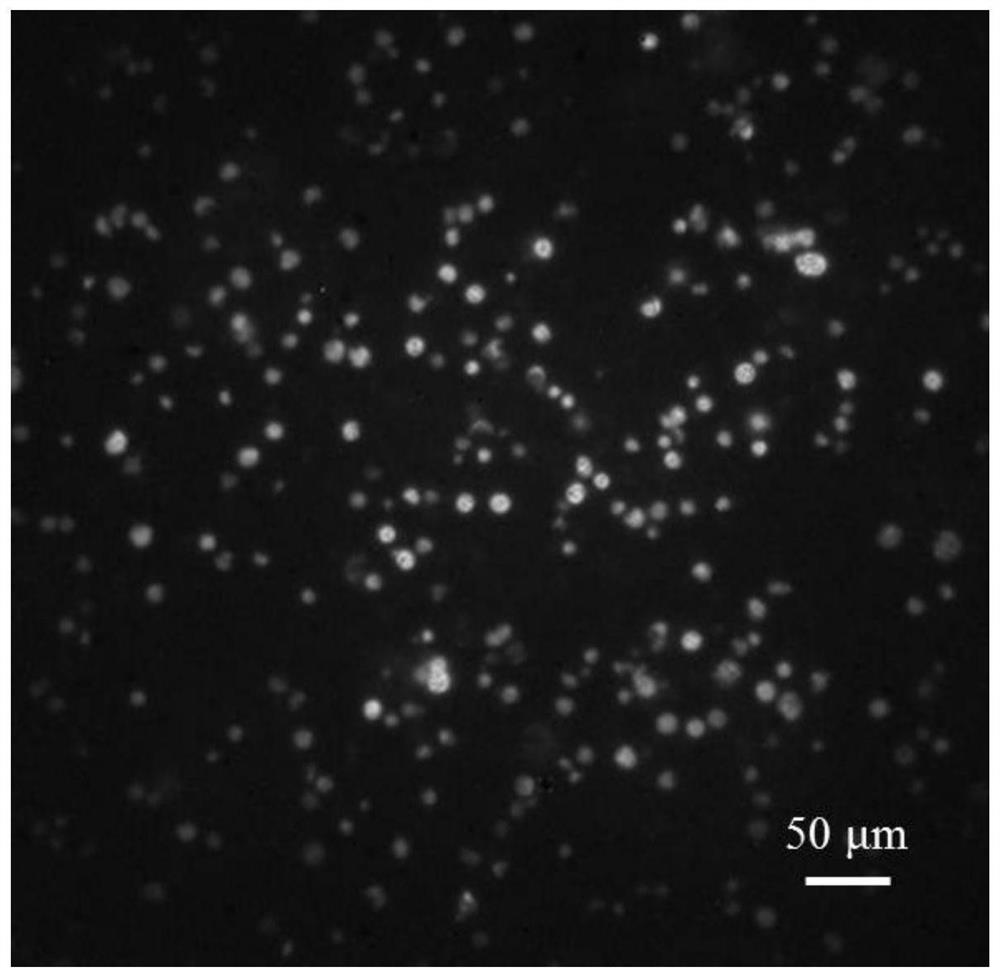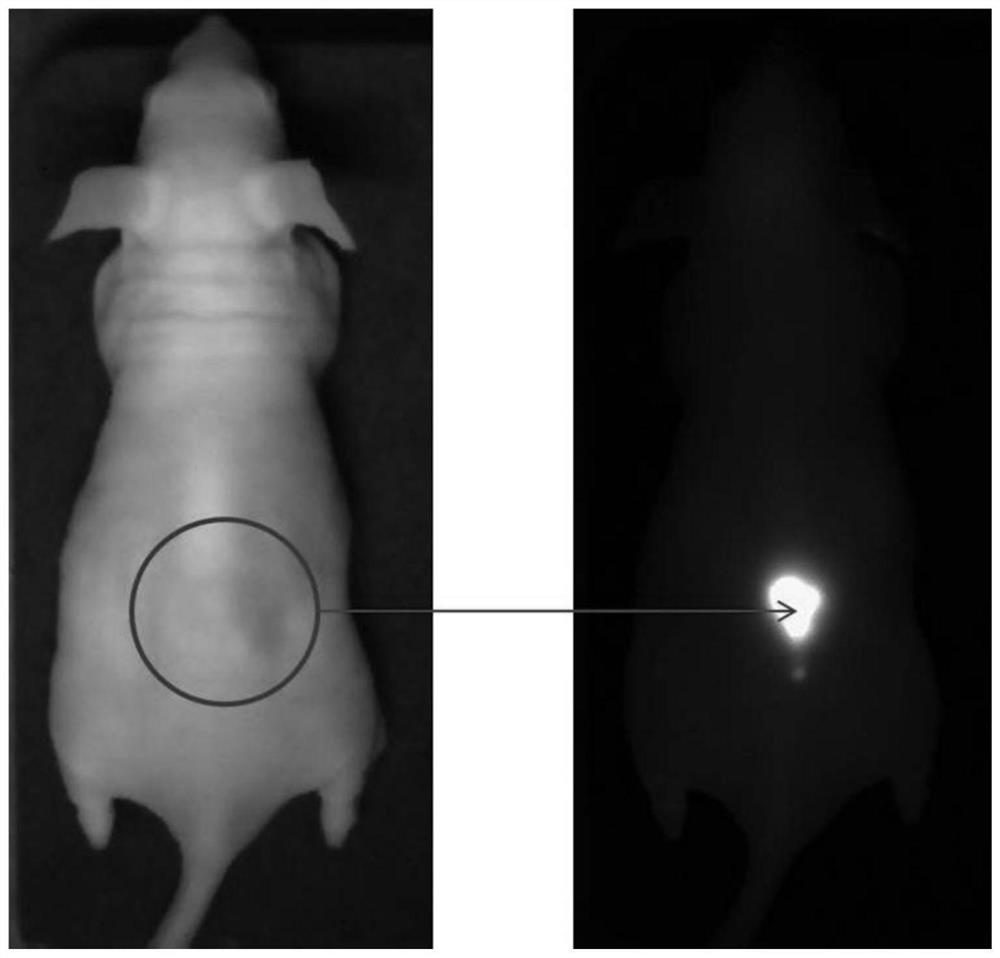A new application of near-infrared region II quantum dots containing selenium
A near-infrared and quantum dot technology, applied in the new application field of quantum dots in the near-infrared II region, can solve the problems of increasing the cost of probe preparation, cumbersome operation, and expensive antibodies
- Summary
- Abstract
- Description
- Claims
- Application Information
AI Technical Summary
Problems solved by technology
Method used
Image
Examples
Embodiment 1
[0056] (1) Extraction and culture of mouse T cells
[0057] Take the spleen of 4-6 weeks old Balb / c mouse, cut it into pieces and grind it on a 200-mesh cell mesh sieve to obtain a spleen homogenate, dilute the spleen homogenate to 5mL and transfer it to a 15mL centrifuge tube, carefully add an equal volume of spleen lymph Cell separation solution, centrifuged at 300g for 30 minutes, sucked out the lymphocyte layer, resuspended with cleaning solution, washed by centrifugation for 3 times, and then purified with nylon cotton column to obtain mouse T cells;
[0058] Inoculate the obtained T cells into culture plates or cell culture flasks, culture them in 1640 medium (containing 10% fetal bovine serum, 0.5% double antibody, 25mM HEPES buffer and 2mM L-glutathione), and add 50ng / mL of CD3 antibody and 200IU / mL interleukin-2 were cultured in a cell incubator, and the medium was replaced every two days, and interleukin-2 was added.
[0059] (2) Marking of T cells
[0060] Centri...
Embodiment 2
[0068] Compared with Example 1, T cells were labeled with PbSe near-infrared II region quantum dots, and other conditions were the same as Example 1. The experimental results except that due to PbSe and Ag 2 Except for the difference in fluorescence signal intensity caused by the different quantum yields of the two quantum dots of Se, there is no qualitative difference from Example 1.
[0069] In summary, the present invention uses the natural selenium binding transport system of T cells to allow T cells to take in the near-infrared II region quantum dots containing selenium, and realizes the natural, non-destructive and highly efficient treatment of T cells by the near-infrared II region quantum dots. Quantum dots in the near-infrared II region are evenly distributed in T cells, the labeling effect is stable, and will not be interfered by biological autofluorescence in in vivo fluorescence imaging, with strong tissue penetration ability and high spatial resolution; the presen...
PUM
 Login to View More
Login to View More Abstract
Description
Claims
Application Information
 Login to View More
Login to View More - R&D Engineer
- R&D Manager
- IP Professional
- Industry Leading Data Capabilities
- Powerful AI technology
- Patent DNA Extraction
Browse by: Latest US Patents, China's latest patents, Technical Efficacy Thesaurus, Application Domain, Technology Topic, Popular Technical Reports.
© 2024 PatSnap. All rights reserved.Legal|Privacy policy|Modern Slavery Act Transparency Statement|Sitemap|About US| Contact US: help@patsnap.com










